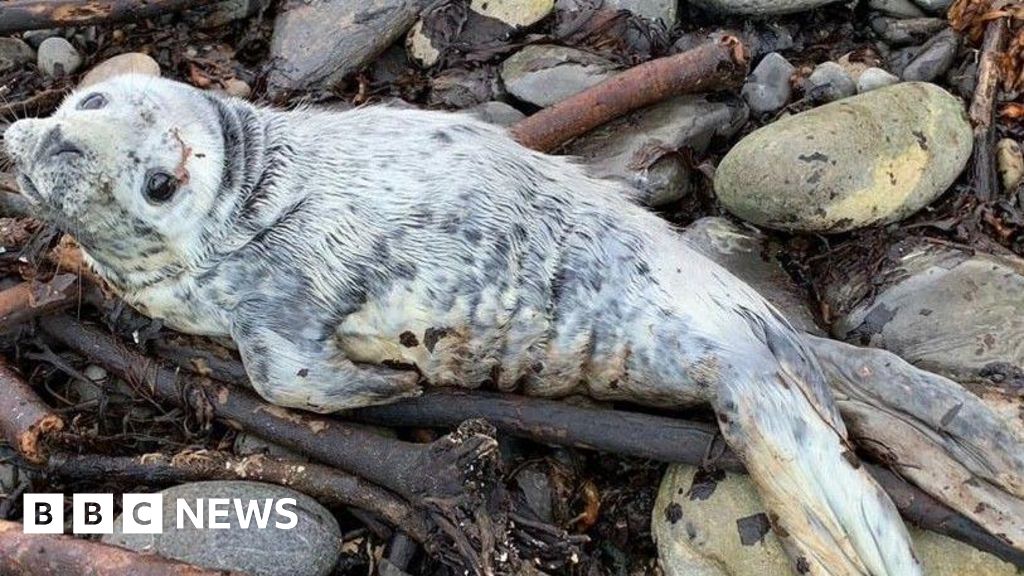Steven McKenzieBBC Highlands and Islands reporter
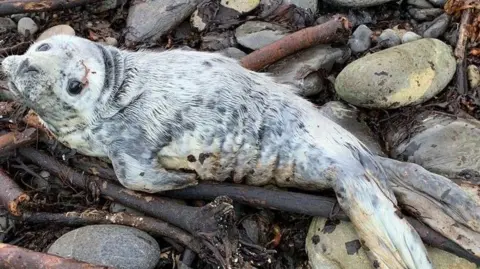 Caithness Seal Rehab and Release Centre
Caithness Seal Rehab and Release Centre
Seals pups can be found injured or ill in summer and winter
A husband and wife have dedicated their lives to saving seals found in difficulty on the Highlands’ rugged north coast.
Phil and Clare Boardman started rescuing the animals eight years ago before setting up a hospital in 2022 at their home in Brough, near Dunnet Head – the most northerly point on mainland Britain.
A sick seal pup can spend about four months receiving round-the-clock care, before being released back into the wild.
“It’s lost its mum and hasn’t clue what life is about. It needs tender loving care,” said Clare on what motivates her.
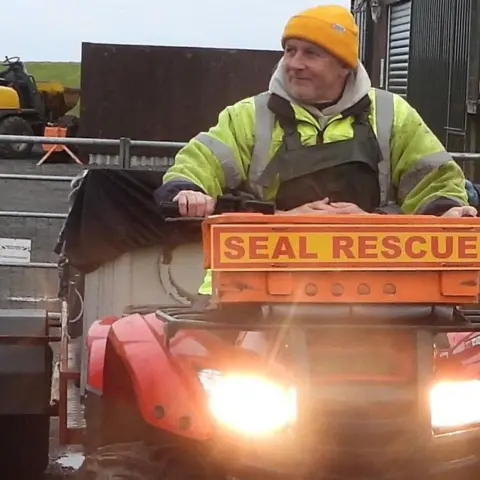 Caithness Seal Rehab and Release Centre
Caithness Seal Rehab and Release Centre
Phil juggles his seal rescue work with running a B&B
Phil and Clare are volunteer marine medics with British Divers Marine Life Rescue (BDMLR).
Clare also helps the Scottish Marine Animal Strandings Scheme (SMASS), a project that investigates whale, dolphin and porpoise deaths on Scotland’s shores.
They decided to set up their own seal hospital because the nearest site equipped to look after the animals is more than 260 miles (418km) away in Edinburgh.
Clare said: “A lot of the seals weren’t surviving the journey down there so we started our own place.”
Phil juggles his charity work with running the couple’s B&B, while for Clare looking after rescued poorly pups is a full-time job.
She has had a life-long passion for wildlife, and worked for more than 20 years as a veterinary nurse.
Clare said: “I’m from South Africa and when I first left school I worked as a trainee ranger in Kruger National Park – very different types of animals from what we deal with today, but I’ve always loved marine wildlife.”
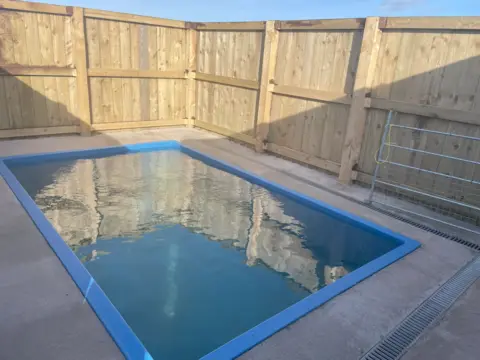 Caithness Seal Rehab and Release Centre
Caithness Seal Rehab and Release Centre
The Boardmans’ hospital includes a pool to help with the seals’ recovery
The Boardmans’ Caithness Seal Rehab and Release Centre is in use all year because common seal pups are born in summer and grey seals in winter.
Clare said summer was the busiest time as the tourist season increased the risk of seals being disturbed by human behaviour.
“For grey seals in winter, pups can be injured during storms,” she added.
BDMLR and Scottish SPCA alert the couple to calls about distressed seals.
Once in the Boardmans’ care, a local vet carries out an assessment and takes blood samples to check for infections.
Then at the hospital, the animals are weighed, measured and re-hydrated.
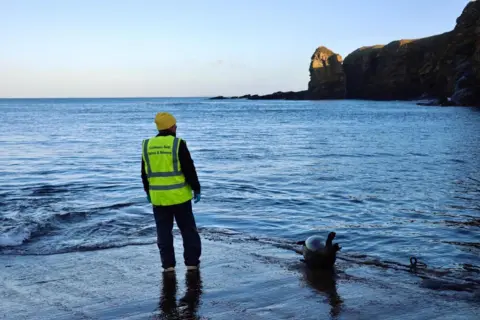 Caithness Seal Rehab and Release Centre
Caithness Seal Rehab and Release Centre
Once fully recovered, seals are returned to the wild
Pups have been treated for dog bites, organ failure and eye injuries.
Some have arrived at the hospital affected by diseases.
To help the pups recover, they are fed formula milk and fish. The centre can spend up to £6,000 a year on fish alone.
It has a licence for 14 seals at any one time, but can handle up to 16 in emergencies.
On average, the seals are in care for four months before being released.
Eighty seals have come through the hospital since it opened.
Clare said the animals were provided with whatever care and attention they needed.
She said she was not concerned they might become accustomed to human contact.
“It’s a little baby that needs to be looked after, she said, adding: “But seals never lose their wild instinct.”
The BBC Make a Difference Awards in Scotland aim to celebrate and recognise people for their work in local communities.
Entries from across Scotland have been whittled down to 33 finalists across nine categories.
The judge for the green award is Blythe Duff, a stalwart of the classic STV detective series Taggart.
Duff portrayed the show’s character Jackie Reid from 1984 to 2011. She has also performed on stage on Broadway and the West End.

